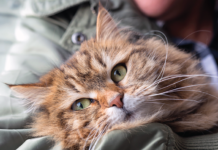For many animal lovers, losing a beloved pet is one of the most heartbreaking experiences they will ever face. Feelings of denial, loneliness, depression and anger are common occurrences. Friends and family may try to be supportive, but after a while they cease 288 to understand why the bereaved pet owner doesnt just get over it and move on. Talking to someone who understands the anguish that a companion animals passing can cause is an important part of the healing process. Those who dont have a trusted veterinarian, member of the clergy or therapist to turn to may find it helpful to talk with a trained professional at a pet loss support hotline. Several veterinary schools across the country operate hotlines, and they have proven to be an indispensable lifeline to grieving pet owners. One such hotline is based at Cornell Universitys College of Veterinary Medicine. Its mission? To help callers cope with their grief and to prepare veterinary students for the emotional side of veterinary practice. Students who volunteer to participate in the program are required to attend three three-hour training sessions with professional counselors and veterinarians. These professionals provide insight into the grieving process so that students will be equipped to assist callers through the fog of grief they are experiencing. Ryane Englar, currently a third-year veterinary student at Cornell Universitys College of Veterinary Medicine, became interested in the schools hotline early in her academic career. “As a first-year veterinary student, I felt it was important to do what I could to improve my own understanding of grief so as to provide the best care to both the patient and the patients family at a most difficult crossroads,” Englar says. Since then, Englar and classmate Michelle Lugones have become co-coordinators of the hotline, which operates as one of Cornells extracurricular associations. James Richards, DVM, director of Cornells Feline Health Center, serves as the hotlines faculty advisor. As a veterinarian in private practice for more than a decade before coming to Cornell 15 years ago, Dr. Richards is a self-described “front-line, in-the-trenches veterinarian.” He realizes that all veterinarians will face the need to help pet owners deal effectively with their sorrow on a regular basis. So when he was asked to lend his support to the hotline, he jumped at the chance to be of assistance. “Im very happy that we offer this service at Cornell,” he says. “Its a good thing for people who love critters and are suffering from the loss of a pet they have loved. In addition, its an important learning experience for the veterinary students.” Most hotlines are available to the community as a whole; callers do not need to be clients of the universitys veterinary hospital in order to take advantage of the service they offer. Cornell University welcomes calls which usually last anywhere from 20 to 40 minutes from anywhere in the country. Owners may call to talk about a cherished pet that has just passed away or to discuss their feelings about an animal that is seriously ill. It is not uncommon for Englar and her fellow classmates to talk with owners who are struggling with the decision of when, or if, its the right time to euthanize their pet. At a time when distressed pet owners are most in need of support, the trained volunteers at pet loss support hotlines are there to comfort, to listen and to understand. “Being a member of Cornells pet loss support hotline is never easy,” Englar concedes. “But it has taught me the power of the human spirit and the giving nature of the human heart. It has reminded me how powerful love truly is and how those that live inside of our hearts are never truly forgotten. It has, in the process, taught me how I can be a better, more compassionate veterinarian.” 



